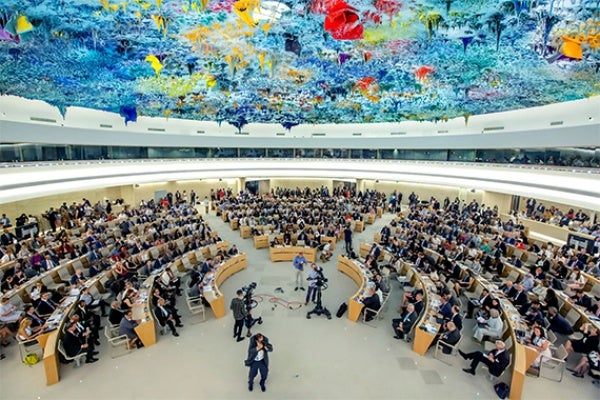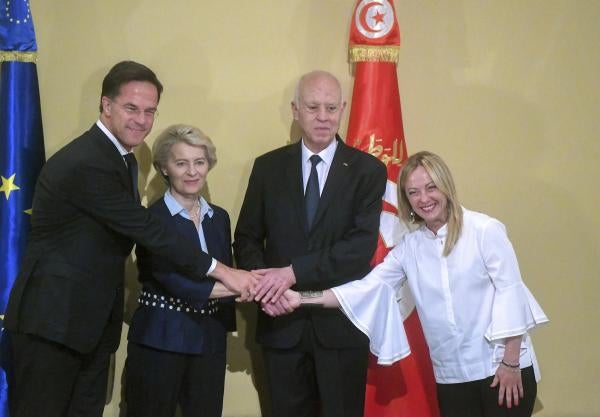Lire la version en français / Hier die deutsche Ausgabe lesen / Lea la versión en español
NOTE: While Andrew is away this week, different members of the Daily Brief team will take over. Today's edition is authored by Deputy European Media Director Jan Kooy.
With the world facing crises in many countries, including Israel and Palestine, Ukraine, Sudan and Syria, UN human rights investigations are crucial to ensure accountability for war crimes and crimes against humanity.
Justice and reparations for victims are hard to obtain, but it is possible, as we’ve seen in cases of crimes committed in the former Yugoslavia, Chad, Syria, and the Central African Republic, among other examples.
But a cash crunch and hiring freeze at the United Nations threatens to hinder UN human rights investigations. UN Secretary-General Antonio Guterres has warned member states that if those with outstanding dues do not pay up soon, the UN will be broke by August. The UN’s regular budget for 2024, which doesn’t include peacekeeping and some other UN activities, is US$3.6 billion.
The United States owes the most but continues to make partial payments. According to UN sources, the US owes $1.1 billion to the UN’s regular budget for 2023 and 2024 plus additional arrears. The Biden administration wants to pay, but Congress has not passed a budget that would allow it to do so.
The US isn’t the only country that has been slow to pay – 50 others hadn’t paid as of the end of 2023. China, the second biggest contributor, didn’t pay its dues until November, which exacerbated the UN’s liquidity problems.
UN management was forced to impose a hiring freeze last year. All UN departments are affected, including the handful of human rights investigations, most of which have relatively small staffs and budgets.
For example, the UN Independent International Fact-Finding Mission for the Sudan that was established four months ago, has a one year mandate to investigate widespread atrocities, but still lacks investigators to carry out the mission. And while the freeze is supposed to allow exceptions for hiring essential staff, UN officials and diplomats told HRW there was confusion about how to get those exceptions.
Delegations from China, Russia, Cuba, and others have been trying for years to defund UN human rights work. Their attempts in December to block funding for investigations into grave human rights abuses in Sudan, Syria, Ukraine, Russia, Nicaragua and elsewhere failed.
The UN leadership and member countries should ensure that the UN’s human rights teams have funding and staff to fulfil their mandates. And governments that still owe dues should pay up.









